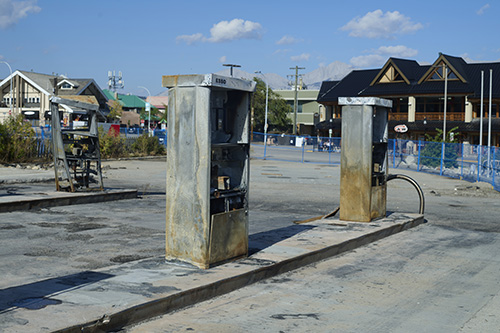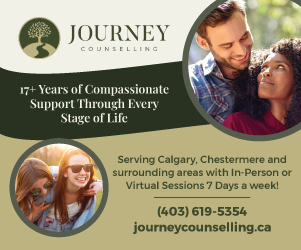
What is depression?
When doctors talk about depression, they usually mean major depression. Someone with major depression has five of the symptoms like those listed in the box below nearly every day, all day, for two weeks or longer. To make the diagnosis, one of these symptoms must be low mood or loss of interest/pleasure in things you used to enjoy. If you’re depressed, you may also have headaches, other aches and pains, stomach or bowel problems, and problems with sex or lack of desire for sex.
An older adult with depression may feel confused or have trouble grasping simple requests. Older adults are also more likely to feel tired, weak or anxious, and to have trouble sleeping.
What causes depression?
Depression seems to be related to a number of things. It has been connected with chemical imbalances in the brain that make it hard for the cells to communicate with one another.
Depression also seems to be genetic (to run in families), though it doesn’t happen to everyone who has it in their family. Depression can be linked to events in your life, such as the death of someone you love, a divorce or job loss. Taking certain medicines, abusing drugs or alcohol, or having other illnesses or diseases can also lead to depression.
Depression isn’t caused by personal weakness, laziness or lack of willpower. It’s a medical illness that can be treated.
Symptoms of depression
•No interest or pleasure in things you used to enjoy
•Feeling sad or empty
•Crying easily or crying for no reason at all
•Feeling slowed down or feeling restless and unable to sit still
•Feeling worthless or guilty
•Change in appetite, leading to weight gain or loss
•Thinking about death or suicide
•Trouble thinking, recalling things or focusing on what you’re doing
•Trouble making everyday decisions
•Problems sleeping, especially in the early morning, or wanting to sleep all of the time or hide under the covers
•Feeling tired all of the time
•Feeling numb emotionally, perhaps even to the point of not being able to cry
How is depression diagnosed?
If you’re having symptoms of depression, be sure to tell your doctor. This is the only way to make sure you get the help you need to get you out of the depression. Don’t expect your doctor to be able to guess that you’re depressed just by looking at you. The longer you have the depression before you seek treatment, the harder it can be to treat.
Once you tell your doctor how you’re feeling, he or she may ask you some questions about your symptoms, about your health, and about your family history of medical and mental disorders. You may be asked to complete a questionnaire called a rating scale for depression. Your doctor may also give you a physical exam and do some basic tests.
How is depression treated?
Treatment may involve medicine, supportive counselling or other forms of counselling such as psychotherapy. From experience, a combination of these may give the best results.
What about medicines?
Many medicines can be used to treat depression. These medicines are called antidepressants. They require a prescription from your doctor. They correct the chemical imbalance in the brain that causes depression.
Antidepressants work differently for different people. They also have different side effects. So, even if one medicine bothers you or doesn’t work for you, another may be helpful. You may notice some effects of the antidepressants as soon as one week after you start taking it but, you probably won’t see the full effects for about six to eight weeks.
How long you’ll need to take the medicine depends on your depression. Your doctor may want you to take medicine for six months or much longer. This is because medicine helps reduce the chance that the depression will come back. Patients have used some antidepressants for over 30 years with no bad effects. Talk with your doctor about any concerns you have.
What is psychotherapy?
In psychotherapy, you talk with your family doctor, a counsellor or a therapist about things that are going on in your life. The focus may be on your thoughts and beliefs or on your relationships. Or it may be on your behaviour, how it’s affecting you and what you can do differently. Psychotherapy is usually brief and often has a time limit, such as eight to 20 visits.
Reasons to get help for depression
•Early treatment helps keep the depression from getting worse or lasting a long time.
•Thoughts of suicide are common and the risk of suicide is higher if you don’t get treated and your depression comes back. When depression is successfully treated, the thoughts of suicide will go away.
•Treatment can help you return to your “normal” self, enjoying life.
•Treatment can help prevent depression from coming back.
•Studies show that depression in the elderly who have lost a spouse leads to death from heart disease.
Will I need to go to the hospital?
Depression can usually be treated through visits to your doctor. Treatment in the hospital may be needed if you have other medical conditions that could affect your treatment or if you’re at great risk of suicide.
If you go to the hospital, you’ll probably only need to stay for a few days, or a week or two. Early treatment, before the depression becomes severe or chronic, lowers the chances of needing to go to the hospital.
Getting through depression
•Pace yourself. Don’t expect to do everything you normally can. Set a realistic schedule.
•Don’t believe all of your negative thinking, such as blaming yourself, feeling hopeless or expecting to fail. This thinking is part of depression. These thoughts will go away as your depression lifts.
•If you can, get involved in activities that make you feel good or make you feel like you’ve achieved something.
•Social supports such as family, friends and support groups are beneficial.
•Put off doing things that you find too difficult at the moment. Avoid making big
•life decisions during a depression. If you must make a big decision, ask someone you trust to help you.
•Avoid drugs and alcohol. Both make depression worse. Both can cause dangerous side effects or get in the way of letting your antidepressants work.
•Try not to get discouraged. It’ll take time for your depression to lift fully. But treatment works for almost everyone.
•Exercise. It not only gives you a distraction but also seems to cause a chemical reaction in the body that may make your mood better. Do it as much as you can. Three times a week for 30 minutes to one hour each time is a good goal but even less can be helpful.
How long will the depression last?
This depends on if you talk to your doctor about it and get help. Left untreated, most depressions will lift in about six months to a year. The main risk in not getting treatment is suicide. Treatments can be very helpful and can improve how you feel in just weeks. Depressions tend to recur so it is very important to stay on treatments for long enough to help prevent the depression from coming back.
What about suicide?
Suicide is a danger if you’re depressed. Oddly, it may become more of a danger just as you’re beginning to recover. This is because your energy level may improve before your mood does. So you may have the energy to carry out thoughts about suicide.
Be sure to talk to your doctor, friends or family, or to call your local suicide hot-line (the number will be in your phone book) if you think you might want to try to kill yourself. Depression is treatable. Call to get help.
* References from the patient education material of AAFP and CFPC.







